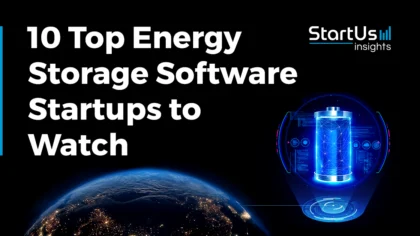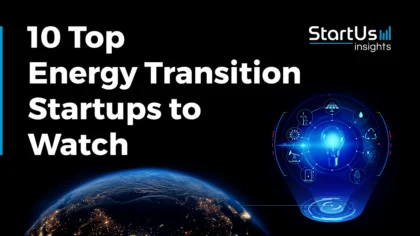Accelerate Productivity in 2025
Reignite Growth Despite the Global Slowdown
Our Innovation Analysts recently looked into emerging technologies and up-and-coming startups working on solutions for the energy sector. As there is a large number of startups working on a wide variety of solutions, we want to share our insights with you. This time, we are taking a look at 4 promising thin-film solar cell startups.
Heat Map: 4 Top Thin-Film Solar Cell Startups
For our 4 top picks, we used a data-driven startup scouting approach to identify the most relevant solutions globally. The Global Startup Heat Map below highlights 4 interesting examples out of 84 relevant solutions. Depending on your specific needs, your top picks might look entirely different.
Freschfield – Quantum Dot (QD)
QD photovoltaic (PV) material increases the efficiency of solar panels, without any increase in their cost. The quantum dots limit charge carriers and collect excess energy that would otherwise simply be lost as heat. Nano paint with QDs and other additives is applied to a glass plate with a conductive layer and then fired to create a photovoltaic battery. A substrate converted into a photovoltaic panel only requires an electrode on top to harvest solar energy.
Freschfield is a UK-based startup that develops quantum semiconductor technologies that extend the harvestable spectrum of light. The company’s solution, iSkin, is a window-like, transparent, energy-producing cladding system that covers entire building facades, not just roofing applications. iSkin converts ultraviolet and infrared light into electricity while letting visible light pass freely into the building. Moreover, the solution generates more electricity than traditional solar panels, even in low light.
Swift Solar – Perovskite Solar Cells
The fragility of solar panels necessitates the search for new, more durable technologies. Perovskites are easy to synthesize materials and are considered the future of solar cells. Their distinctive structure makes them perfect for low-cost, efficient, and stable photovoltaics. Perovskite cells include different materials with a suitable crystal structure and have flexible characteristics. Solar energy companies apply perovskite as ink for solar cells as its production is energy-efficient.
Swift Solar is a US-based manufacturer of lightweight and flexible solar modules. The startup uses perovskite solar cells that have high-efficiency and high power-to-weight ratio. For this, Swift Solar uses abundant and cheap raw materials to produce perovskite solar cells, making its product more affordable compared to conventional solar panels.
Sunew – Organic Photovoltaics (OPV)
The issue of recycling solar panels becomes increasingly relevant for clean energy. Organic photovoltaics made of carbon-based materials, including polymers, are recyclable. Additionally, these panels use carbon sources as raw materials and are structurally flexible, which makes them suitable for use on a variety of surfaces. Other key features are lower maintenance costs, lower power consumption during the manufacturing process, and simplified logistics. However, their efficiency is still lower than that of silicon modules.
Brazil-based startup Sunew produces organic photovoltaics composed of non-toxic abundant materials. The production process for their OPVs has lower energy demand and a lower carbon footprint compared to traditional solar technologies. The startup’s OPV is light, flexible, semitransparent, and customizable which allows Sunew’s PVs to adapt to environments where traditional solar technologies do not apply.
Swedish Algae Factory – Dye-Sensitized Solar Cells (DSSC)
Over the past decade, lowering the cost of solar cells has been the biggest challenge for traditional solar power. Dye-sensitized solar cells are a technically and economically viable alternative for photovoltaic devices. Such panels work on the principles of separation of transfer and light absorption functions and capture not only bright light but also scattered radiation incidents on the element at a small angle. DSSCs are cheaper to manufacture than conventional silicon photovoltaic panels.
Swedish Algae Factory develops functional materials from algae. The company uses diatom frustules to offer dye-sensitized solar cell improvements. The startup’s technology makes silicon-based solar panels efficiency at least 4% more efficient and offers excellent light manipulating properties. This allows their integration in windows, building facades, and even clothing to generate electricity.
What About The Other 80 Solutions?
While we believe data is key to creating insights it can be easy to be overwhelmed by it. Our ambition is to create a comprehensive overview and provide actionable innovation intelligence for your Proof of Concept (PoC), partnership, or investment targets. The 4 thin-film solar cell startups showcased above are promising examples out of 84 we analyzed for this article. To identify the most relevant solutions based on your specific criteria and collaboration strategy, get in touch.








